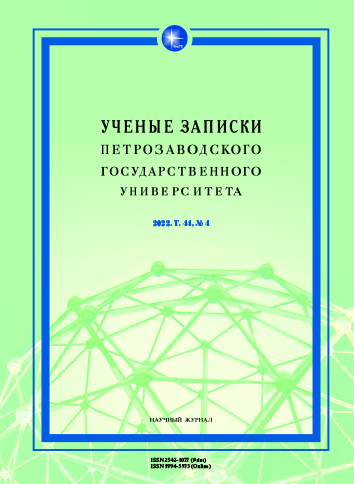КНИЖНО-СЛАВЯНСКИЕ ЭЛЕМЕНТЫ В ЯЗЫКЕ МЕЖДУНАРОДНЫХ ЮРИДИЧЕСКИХ ДОКУМЕНТОВ МОСКОВСКОЙ РУСИ ВТОРОЙ ПОЛОВИНЫ XVII ВЕКА
SLAVONIC WRITTEN LANGUAGE ELEMENTS IN THE MUSCOVY INTERNATIONAL LEGAL DOCUMENTS OF THE SECOND HALF OF THE XVII CENTURY
Author(s): Svetlana Vladimirovna RusanovaSubject(s): Language studies, Language and Literature Studies, 17th Century, Theory of Literature
Published by: Петрозаводский государственный университет
Keywords: history of Russian literary language; mandative language; international legal document; Slavonic written language (Church Slavonic) means;
Summary/Abstract: The article deals with the “Slavicisation” of business writing as a key process during the development of a new type of business language. The focus is on the international legal documents of the second half of the XVII century which have been understudied by linguists. This determines the urgency and novelty of the study aimed at revealing the linguistic specifics in the international legal documents of the specified period. Besides, the study determines their role in the further transformation of the official business language. The article has discovered that international legal documents had a special position among the texts created in the standard and non-standard mandative language. Representing official legal documents, such acts had to be drawn up by means of the standard mandative language. However, in reality they contain some Church Slavonic elements which are not standard for such texts. The combination of mandative and Church Slavonic means associated with the communicative and stylistic attitudes of the drafters was characteristic of the international legal documents, but not the mandative language of the specified period in general. The research describes the Church Slavonic elements used in the language of the documents under study and also subdivides these elements into the etiquette, stylistic and text-forming types. The study also affirms the significance of discovering Church Slavonic elements in a thematically and genre-limited group of official documents within the mandative tradition. The conducted analysis helps to clarify how Church Slavonic means occurred in the official business language of the Petrine period and trace the mechanisms of their adaptation in the new linguistic space of state communication
Journal: Ученые записки Петрозаводского государственного университета
- Issue Year: 44/2022
- Issue No: 4
- Page Range: 109-115
- Page Count: 7
- Language: Russian

